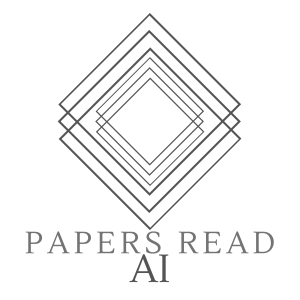
A Vector Quantized Approach for Text to Speech Synthesis on Real-World Spontaneous Speech
 2023-02-21
2023-02-21
Recent Text-to-Speech (TTS) systems trained on reading or acted corpora have achieved near human-level naturalness. The diversity of human speech, however, often goes beyond the coverage of these corpora. We believe the ability to handle such diversity is crucial for AI systems to achieve human-level communication. Our work explores the use of more abundant real-world data for building speech synthesizers. We train TTS systems using real-world speech from YouTube and podcasts. We observe the mismatch between training and inference alignments in mel-spectrogram based autoregressive models, leading to unintelligible synthesis, and demonstrate that learned discrete codes within multiple code groups effectively resolves this issue. We introduce our MQTTS system whose architecture is designed for multiple code generation and monotonic alignment, along with the use of a clean silence prompt to improve synthesis quality. We conduct ablation analyses to identify the efficacy of our methods. We show that MQTTS outperforms existing TTS systems in several objective and subjective measures.
2023: Li-Wei Chen, Shinji Watanabe, Alexander I. Rudnicky
https://arxiv.org/pdf/2302.04215v1.pdf
view more
More Episodes
A Survey on Evaluation of Large Language Models
 2023-07-10
2023-07-10
 181
181
 2023-07-10
2023-07-10
 181
181
Voice Conversion With Just Nearest Neighbors
 2023-07-07
2023-07-07
 140
140
 2023-07-07
2023-07-07
 140
140
Augmenting Language Models with Long-Term Memory
 2023-07-03
2023-07-03
 136
136
 2023-07-03
2023-07-03
 136
136
MotionGPT: Human Motion as a Foreign Language
 2023-07-01
2023-07-01
 101
101
 2023-07-01
2023-07-01
 101
101
FinGPT: Open-Source Financial Large Language Models
 2023-06-29
2023-06-29
 156
156
 2023-06-29
2023-06-29
 156
156
A Survey on Multimodal Large Language Models
 2023-06-28
2023-06-28
 136
136
 2023-06-28
2023-06-28
 136
136
Fast Segment Anything
 2023-06-26
2023-06-26
 144
144
 2023-06-26
2023-06-26
 144
144
Fast Training of Diffusion Models with Masked Transformers
 2023-06-22
2023-06-22
 145
145
 2023-06-22
2023-06-22
 145
145
Simple and Controllable Music Generation
 2023-06-13
2023-06-13
 159
159
 2023-06-13
2023-06-13
 159
159
White-Box Transformers via Sparse Rate Reduction
 2023-06-12
2023-06-12
 231
231
 2023-06-12
2023-06-12
 231
231
A Literature Study of Embeddings on Source Code
 2023-06-11
2023-06-11
 135
135
 2023-06-11
2023-06-11
 135
135
012345678910111213141516171819
Create your
podcast in
minutes
- Full-featured podcast site
- Unlimited storage and bandwidth
- Comprehensive podcast stats
- Distribute to Apple Podcasts, Spotify, and more
- Make money with your podcast
It is Free
- Privacy Policy
- Cookie Policy
- Terms of Use
- Consent Preferences
- Copyright © 2015-2024 Podbean.com




